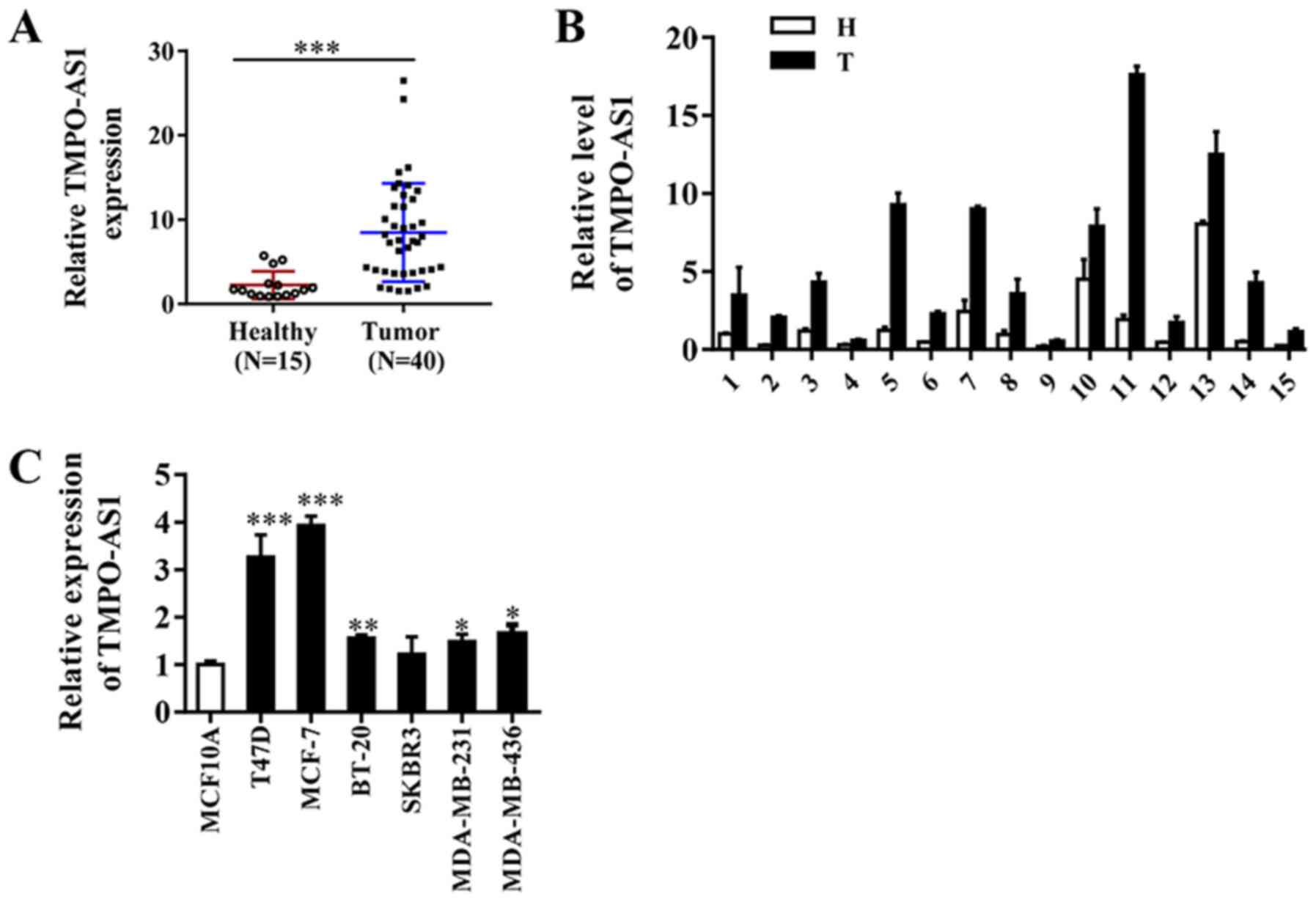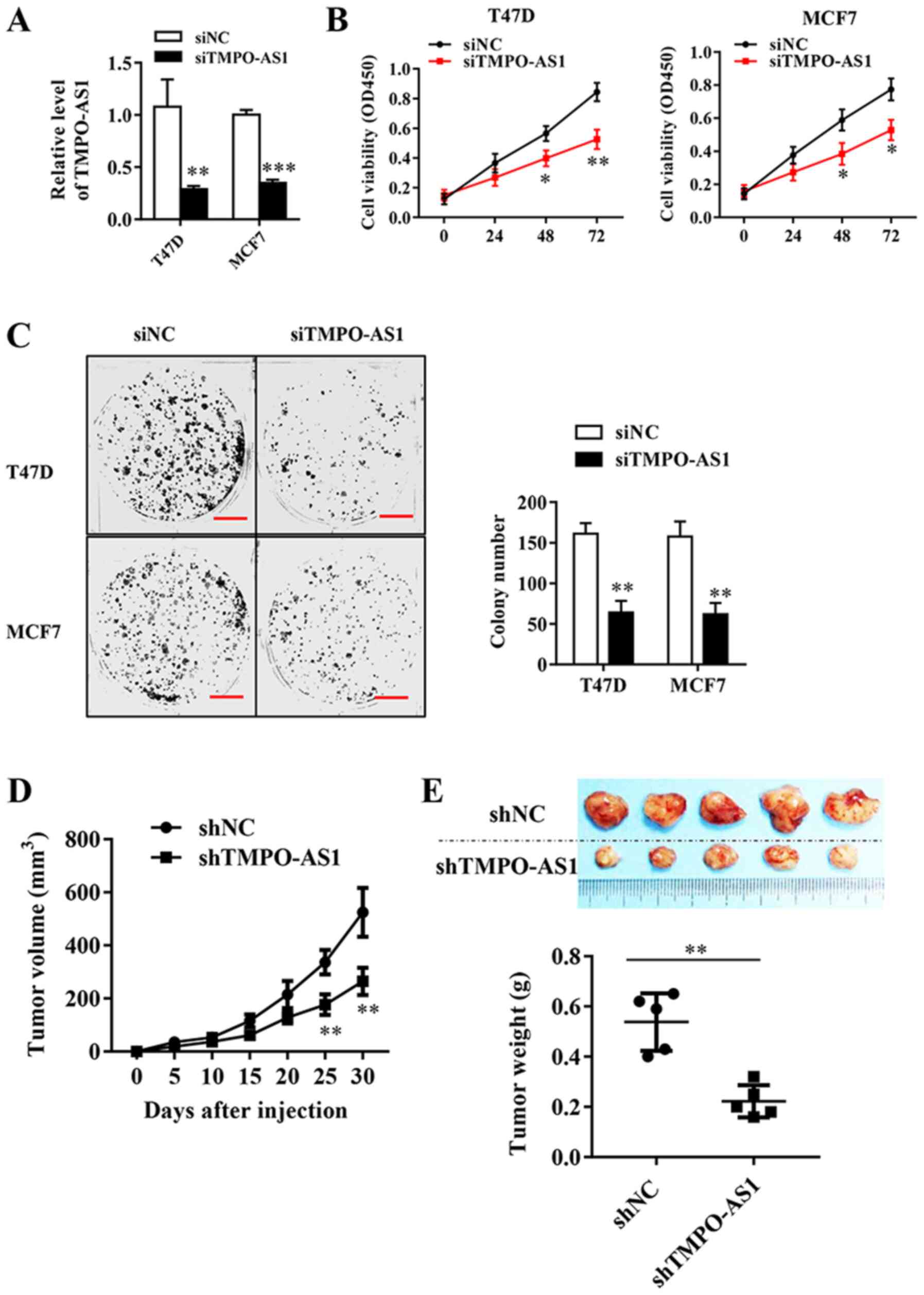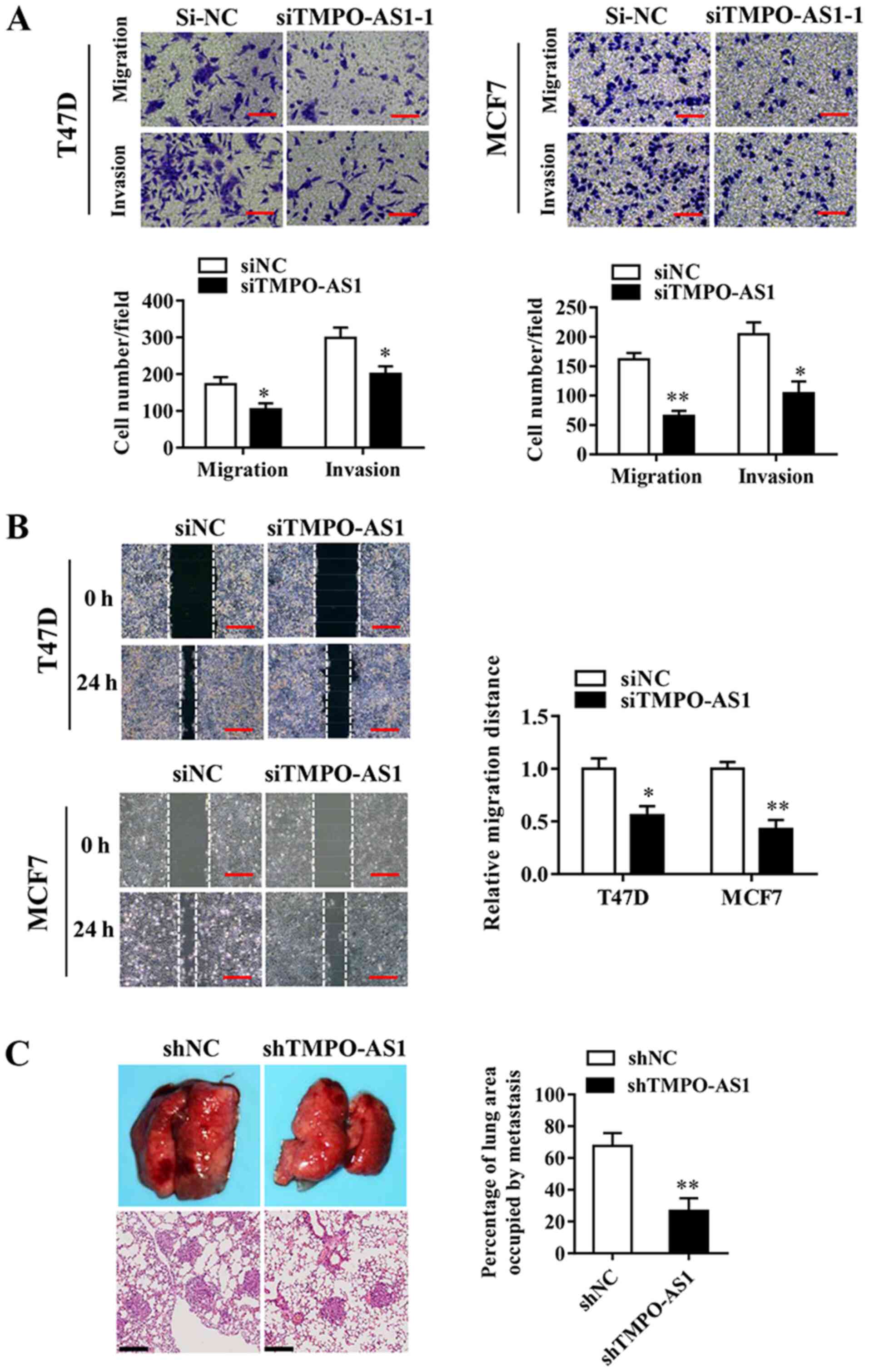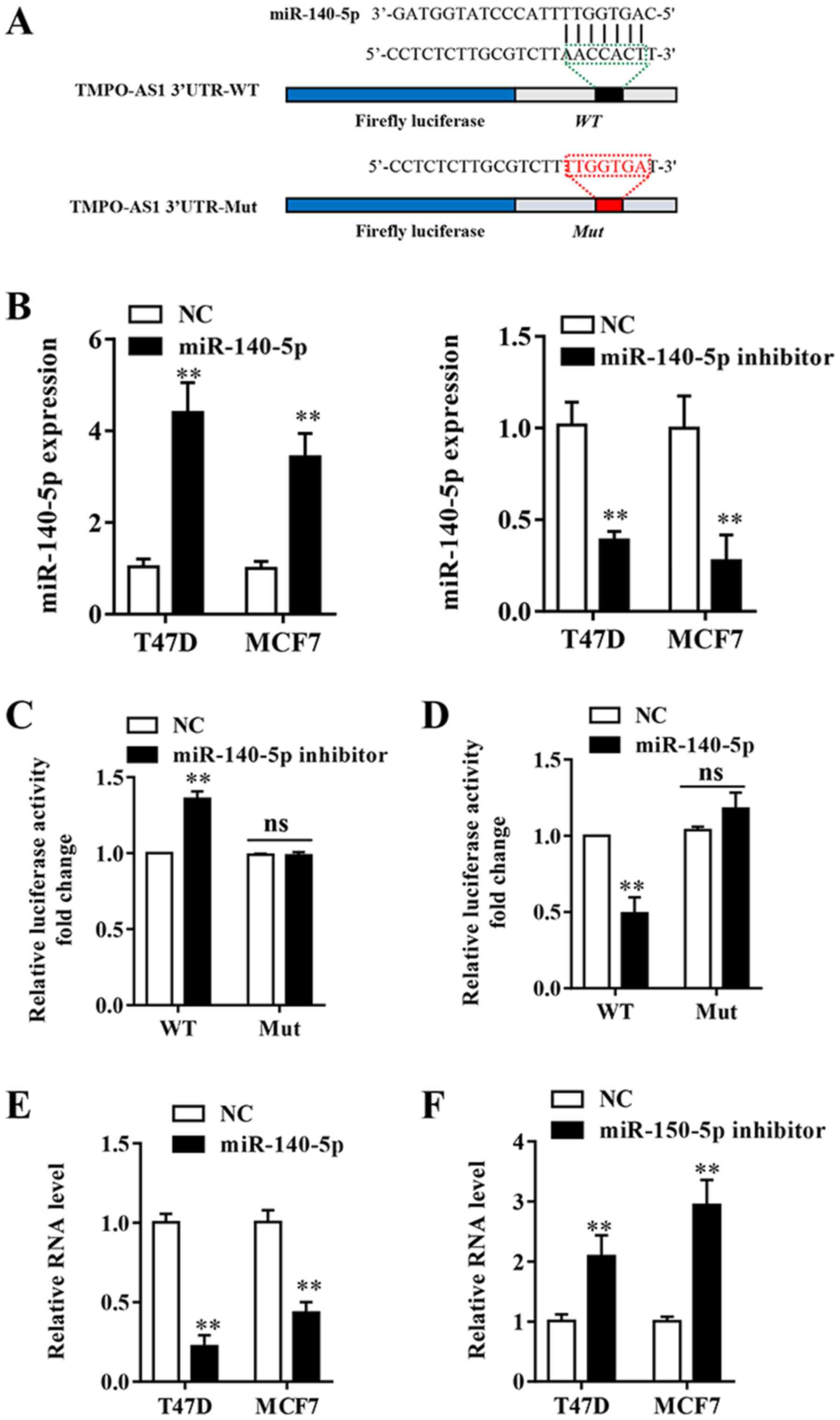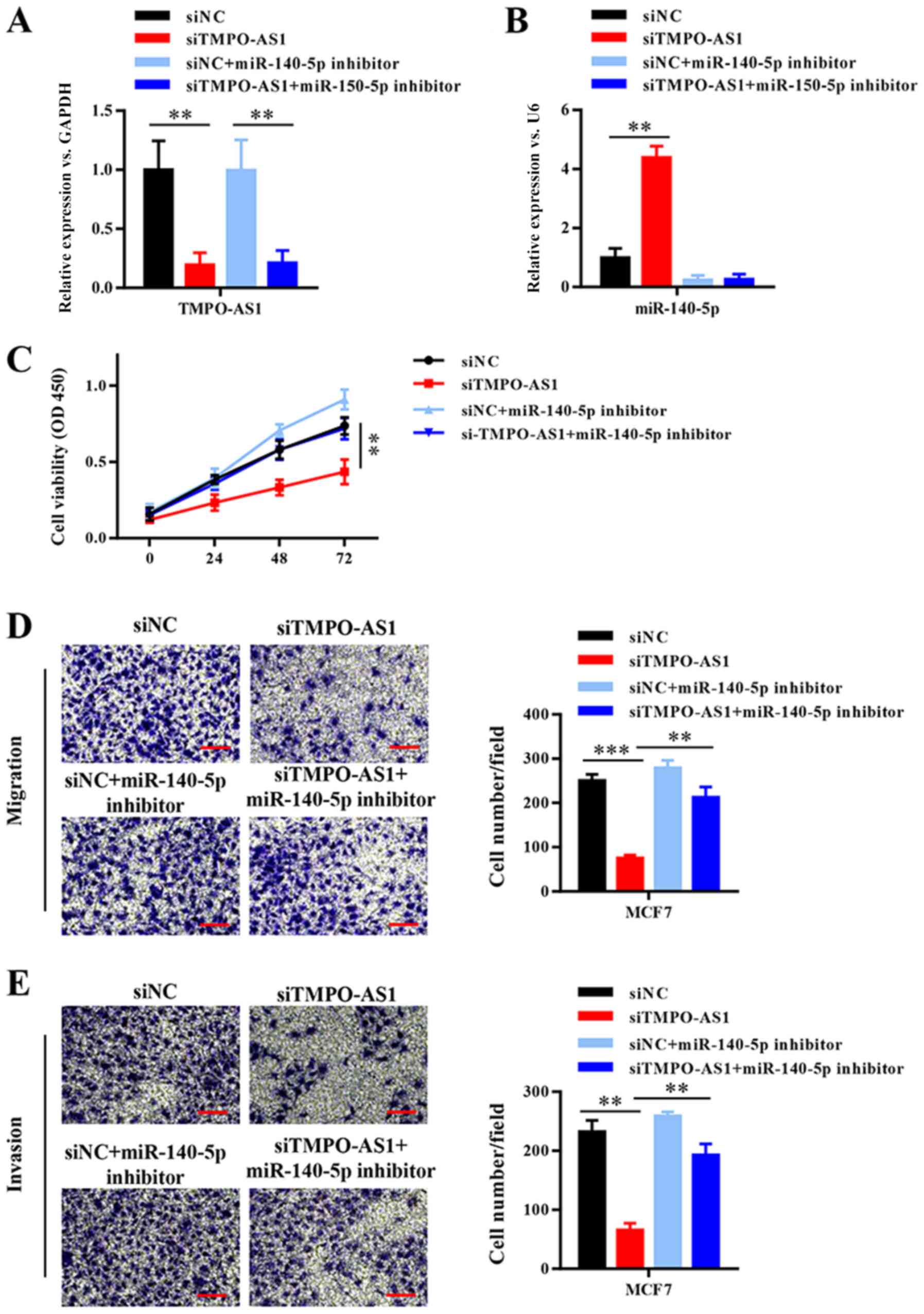|
1
|
DeSantis CE, Fedewa SA, Goding Sauer A,
Kramer JL, Smith RA and Jemal A: Breast cancer statistics, 2015:
Convergence of incidence rates between black and white women. CA
Cancer J Clin. 66:31–42. 2016.PubMed/NCBI View Article : Google Scholar
|
|
2
|
Graveel CR, Calderone HM, Westerhuis JJ,
Winn ME and Sempere LF: Critical analysis of the potential for
microRNA biomarkers in breast cancer management. Breast Cancer
(Dove Med Press). 7:59–79. 2015.PubMed/NCBI View Article : Google Scholar
|
|
3
|
Antonarakis ES: AR signaling in human
malignancies: Prostate cancer and beyond. Cancers (Basel).
10(22)2018.PubMed/NCBI View Article : Google Scholar
|
|
4
|
Rahim B and O'Regan R: AR signaling in
breast cancer. Cancers (Basel). 9(21)2017.PubMed/NCBI View Article : Google Scholar
|
|
5
|
Anastasiadi Z, Lianos GD, Ignatiadou E,
Harissis HV and Mitsis M: Breast cancer in young women: An
overview. Updates Surg. 69:313–317. 2017.PubMed/NCBI View Article : Google Scholar
|
|
6
|
Torre LA, Siegel RL, Ward EM and Jemal A:
Global cancer incidence and mortality rates and trends-an update.
Cancer Epidemiol Biomarkers Prev. 25:16–27. 2016.PubMed/NCBI View Article : Google Scholar
|
|
7
|
Djebali S, Davis CA, Merkel A, Dobin A,
Lassmann T, Mortazavi A, Tanzer A, Lagarde J, Lin W, Schlesinger F,
et al: Landscape of transcription in human cells. Nature.
489:101–108. 2012.PubMed/NCBI View Article : Google Scholar
|
|
8
|
Santosh B, Varshney A and Yadava PK:
Non-coding RNAs: Biological functions and applications. Cell
Biochem Funct. 33:14–22. 2015.PubMed/NCBI View
Article : Google Scholar
|
|
9
|
ENCODE Project Consortium; Birney E,
Stamatoyannopoulos JA, Dutta A, Guigó R, Gingeras TR, Margulies EH,
Weng Z, Snyder M, Dermitzakis ET, et al: Identification and
analysis of functional elements in 1% of the human genome by the
ENCODE pilot project. Nature 447: 799-816, 2007.
|
|
10
|
Yuan JH, Yang F, Wang F, Ma JZ, Guo YJ,
Tao QF, Liu F, Pan W, Wang TT, Zhou CC, et al: A long noncoding RNA
activated by TGF-β promotes the invasion-metastasis cascade in
hepatocellular carcinoma. Cancer Cell. 25:666–681. 2014.PubMed/NCBI View Article : Google Scholar
|
|
11
|
Han P and Chang CP: Long non-coding RNA
and chromatin remodeling. RNA Biol. 12:1094–1098. 2015.PubMed/NCBI View Article : Google Scholar
|
|
12
|
Ponting CP, Oliver PL and Reik W:
Evolution and functions of long noncoding RNAs. Cell. 136:629–641.
2009.PubMed/NCBI View Article : Google Scholar
|
|
13
|
Li Y, Zhu G, Ma Y and Qu H: lncRNA CCAT1
contributes to the growth and invasion of gastric cancer via
targeting miR-219-1. J Cell Biochem. 120:19457–19468.
2019.PubMed/NCBI View Article : Google Scholar
|
|
14
|
Han M, Wang Y, Gu Y, Ge X, Seng J, Guo G,
Zhang X, Zhao Y and Dou D: lncRNA GHET1 knockdown suppresses breast
cancer activity in vitro and in vivo. Am J Transl Res. 11:31–44.
2019.PubMed/NCBI
|
|
15
|
He P, Zhang Z, Huang G, Wang H, Xu D, Liao
W and Kang Y: miR-141 modulates osteoblastic cell proliferation by
regulating the target gene of lncRNA H19 and lncRNA H19-derived
miR-675. Am J Transl Res. 8:1780–1788. 2016.PubMed/NCBI
|
|
16
|
Yang Q, Tang Y, Tang C, Cong H, Wang X,
Shen X and Ju S: Diminished LINC00173 expression induced miR-182-5p
accumulation promotes cell proliferation, migration and apoptosis
inhibition via AGER/NF-kappaB pathway in non-small-cell lung
cancer. Am J Transl Res. 11:4248–4262. 2019.PubMed/NCBI
|
|
17
|
Zhang L, Li S, Choi YL, Lee J, Gong Z, Liu
X, Pei Y, Jiang A, Ye M, Mao M, et al: Systematic identification of
cancer-related long noncoding RNAs and aberrant alternative
splicing of quintuple-negative lung adenocarcinoma through RNA-Seq.
Lung Cancer. 109:21–27. 2017.PubMed/NCBI View Article : Google Scholar
|
|
18
|
Yin YZ, Zheng WH, Zhang X, Chen YH and Tuo
YH: LINC00346 promotes hepatocellular carcinoma progression via
activating the JAK-STAT3 signaling pathway. J Cell Biochem.
121:735–742. 2019.PubMed/NCBI View Article : Google Scholar
|
|
19
|
Mitobe Y, Ikeda K, Sato W, Kodama Y, Naito
M, Gotoh N, Miyata K, Kataoka K, Sasaki H, Horie-Inoue K and Inoue
S: Proliferation-associated long noncoding RNA, TMPO-AS1, is a
potential therapeutic target for triple-negative breast cancer.
Cancer Sci. 111:2440–2450. 2020.PubMed/NCBI View Article : Google Scholar
|
|
20
|
Livak KJ and Schmittgen TD: Analysis of
relative gene expression data using real-time quantitative PCR and
the 2(-Delta Delta C(T)) method. Methods. 25:402–408.
2001.PubMed/NCBI View Article : Google Scholar
|
|
21
|
Ngan E, Stoletov K, Smith HW, Common J,
Muller WJ, Lewis JD and Siegel PM: LPP is a Src substrate required
for invadopodia formation and efficient breast cancer lung
metastasis. Nat Commun. 8(15059)2017.PubMed/NCBI View Article : Google Scholar
|
|
22
|
Sumazin P, Yang X, Chiu HS, Chung WJ, Iyer
A, Llobet-Navas D, Rajbhandari P, Bansal M, Guarnieri P, Silva J
and Califano A: An extensive microRNA-mediated network of RNA-RNA
interactions regulates established oncogenic pathways in
glioblastoma. Cell. 147:370–381. 2011.PubMed/NCBI View Article : Google Scholar
|
|
23
|
Ogretmen B and Hannun YA: Biologically
active sphingolipids in cancer pathogenesis and treatment. Nat Rev
Cancer. 4:604–616. 2004.PubMed/NCBI View
Article : Google Scholar
|
|
24
|
Wang Y, Zhou J, Wang Z, Wang P and Li S:
Upregulation of SOX2 activated LncRNA PVT1 expression promotes
breast cancer cell growth and invasion. Biochem Biophys Res Commun.
493:429–436. 2017.PubMed/NCBI View Article : Google Scholar
|
|
25
|
Patani N, Martin LA and Dowsett M:
Biomarkers for the clinical management of breast cancer:
International perspective. Int J Cancer. 133:1–13. 2013.PubMed/NCBI View Article : Google Scholar
|
|
26
|
Wang KC and Chang HY: Molecular mechanisms
of long noncoding RNAs. Mol Cell. 43:904–914. 2011.PubMed/NCBI View Article : Google Scholar
|
|
27
|
Mitobe Y, Takayama KI, Horie-Inoue K and
Inoue S: Prostate cancer-associated lncRNAs. Cancer Lett.
418:159–166. 2018.PubMed/NCBI View Article : Google Scholar
|
|
28
|
Gupta RA, Shah N, Wang KC, Kim J, Horlings
HM, Wong DJ, Tsai MC, Hung T, Argani P, Rinn JL, et al: Long
non-coding RNA HOTAIR reprograms chromatin state to promote cancer
metastasis. Nature. 464:1071–1076. 2010.PubMed/NCBI View Article : Google Scholar
|
|
29
|
Lin A, Li C, Xing Z, Hu Q, Liang K, Han L,
Wang C, Hawke DH, Wang S, Zhang Y, et al: The LINK-A lncRNA
activates normoxic HIF1α signalling in triple-negative breast
cancer. Nat Cell Biol. 18:213–224. 2016.PubMed/NCBI View
Article : Google Scholar
|
|
30
|
Dong HT, Liu Q, Zhao T, Yao F, Xu Y, Chen
B, Wu Y, Zheng X, Jin F, Li J and Xing P: Long non-coding RNA
LOXL1-AS1 drives breast cancer invasion and metastasis by
antagonizing miR-708-5p expression and activity. Mol Ther Nucleic
Acids. 19:696–705. 2020.PubMed/NCBI View Article : Google Scholar
|
|
31
|
Xiu B, Chi Y, Liu L, Chi W, Zhang Q, Chen
J, Guo R, Si J, Li L, Xue J, et al: LINC02273 drives breast cancer
metastasis by epigenetically increasing AGR2 transcription. Mol
Cancer. 18(187)2019.PubMed/NCBI View Article : Google Scholar
|
|
32
|
Lv L, He L, Chen S, Yu Y, Che G, Tao X,
Wang S, Jian Z and Zhang X: Long non-coding RNA LINC00114
facilitates colorectal cancer development through
EZH2/DNMT1-induced miR-133b suppression. Front Oncol.
9(1383)2019.PubMed/NCBI View Article : Google Scholar
|
|
33
|
Abe M and Bonini NM: MicroRNAs and
neurodegeneration: Role and impact. Trends Cell Biol. 23:30–36.
2013.PubMed/NCBI View Article : Google Scholar
|
|
34
|
Bartel DP: MicroRNAs: Target recognition
and regulatory functions. Cell. 136:215–233. 2009.PubMed/NCBI View Article : Google Scholar
|
|
35
|
Da Sacco L and Masotti A: Recent insights
and novel bioinformatics tools to understand the role of microRNAs
binding to 5' untranslated region. Int J Mol Sci. 14:480–495.
2012.PubMed/NCBI View Article : Google Scholar
|
|
36
|
Brummer A and Hausser J: MicroRNA binding
sites in the coding region of mRNAs: Extending the repertoire of
post-transcriptional gene regulation. Bioessays. 36:617–626.
2015.PubMed/NCBI View Article : Google Scholar
|
|
37
|
Cesana M, Cacchiarelli D, Legnini I,
Santini T, Sthandier O, Chinappi M, Tramontano A and Bozzoni I: A
long noncoding RNA controls muscle differentiation by functioning
as a competing endogenous RNA. Cell. 147:358–369. 2011.PubMed/NCBI View Article : Google Scholar
|
|
38
|
Karreth FA, Tay Y, Perna D, Ala U, Tan SM
Rust AG, DeNicola G, Webster KA, Weiss D, Perez-Mancera PA, et al:
In vivo identification of tumor-suppressive PTEN ceRNAs in an
oncogenic BRAF-induced mouse model of melanoma. Cell. 147:382–395.
2011.PubMed/NCBI View Article : Google Scholar
|
|
39
|
Salmena L, Poliseno L, Tay Y, Kats L and
Pandolfi PP: A ceRNA hypothesis: The Rosetta Stone of a hidden RNA
language? Cell. 146:353–358. 2011.PubMed/NCBI View Article : Google Scholar
|















